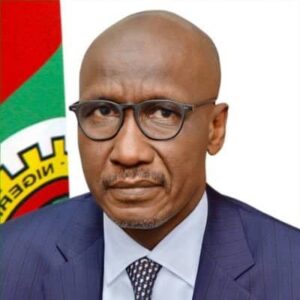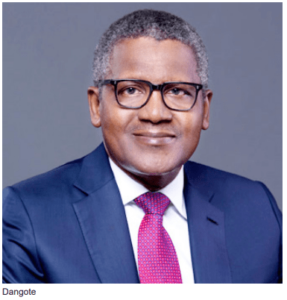Prepare for the fourth technological revolution, Osinbajo tasks manufacturers

The Vice President, Yemi Osinbajo has charged manufacturers in Nigeria to prepare for the fourth industrial revolution that would emerge during the post implementation of the African Continental Free Trade Area (AfCFTA), and also embrace the current trends in technological innovations.
He disclosed this at the opening ceremony of the fifth Nigeria Manufacturing and Equipment Exhibition (NME Expo) tagged: ‘The Fourth Industrial Revolution and the Nigerian Manufacturing sector’, organised by the Manufacturers Association of Nigeria (MAN) and the Raw Materials Research and Development Council (RMRDC) in Lagos.
Osinbajo noted that with the trend of technological development going on in various sectors of the economy, and around the world, Nigeria and its business community is living in an exciting time.
“Nigeria is standing on the brink of the fourth technological revolution that will fundamentally alter the way her people live, work and relate to one another.
“Also we are at the threshold of the African Continental Free Trade Area (AfCFTA) agreement that will reposition the Nigerian market and the way trade is carried out in Africa.
“We are living in an exciting time. The manufacturing sector must prepare itself for the fourth industrial revolution that is coming in the age of AfCFTA. I am extremely thrilled to see that the theme of this expo speaks on the changes that we must expect.
The Vice President, who was represented by the Minister of Industry, Trade and Investment, Mr. Niyi Adebayo, said, “the possibilities of billions of people connected by mobile devices, with unprecedented processing power, storage capacity and access to knowledge are unlimited and these possibilities will be multiplied by emerging technology breakthroughs in fields such as artificial intelligence, robotics, autonomous vehicles 3-D printing, and so forth. Already, artificial intelligence is all around us from self-driving cars and drones to virtual assistants and software that automatically translate languages”.
“Already, artificial intelligence is all around us from self-driven cars and drones to software that can automatically translate languages. “Nigerians are the second largest users of the internet and mobile telephones with about 117 million at the last count. I look forward to getting feedback on your deliberation on how we will prepare for the changes that lie ahead and make the most of our existing advantages.”
Speaking earlier, the National President of MAN, Engr. Mansur Ahmed, said this annual event which provides a common ground for large manufacturing organizations and SMEs to explore new production process that will increase their production output, MAN has taken the challenge of leading the manufacturing sector to play a vital role in the nation’s vision of becoming one of the leading industrialised economies in Africa.
“The theme is informed by the observed global trends and current development experienced in some developing nations, which have used industrialization as a growth tool to drive and transform their economy as well as improve their standards of living. Notable experiences from the East Asian Tigers-Indonesia, Malaysia, Thailand, China, India, and Vietnam, have illustrated the transformative nature of industrialisation.”
According to him, “the emergence of new technology, changing markets and the upcoming African free trade market calls for stakeholders collaboration to anticipate and respond appropriately to the evolving manufacturing eco-system which is been ushered in the rapid adoption of this new and innovative technology.
“These new technologies which are largely driven by digital revolution such as robotics, cloud computing, big data, artificial intelligence, additive manufacturing are influencing manufacturing input and output.”
“Ahead of the implementation of the AfCFTA which will open our manufacturing sector to a much larger market, Nigeria manufacturers have to adopt the use of new technology to compete favourably with other nations that will be participating in the free trade market.”
He further stressed that, “one critical challenge before us is the inadequate energy supply for industrial use. As manufacturers, we cannot achieve competitiveness with the current state of our electricity supply. It is thus, expedient that government scale-up its plan for the energy sector to reduce cost, improve processes, maximise value addition and generate employment.”
“There is also the need to increase skills and labour productivity and encourage more women into the manufacturing field in this regard.
“The nation’s current energy projection and currently generated supply is below the expected level required to drive an industrialized economy.”






